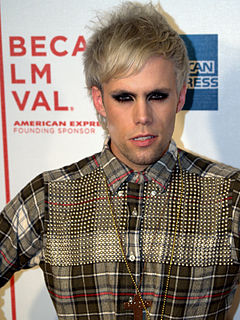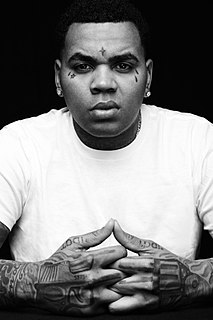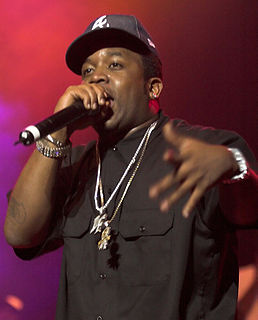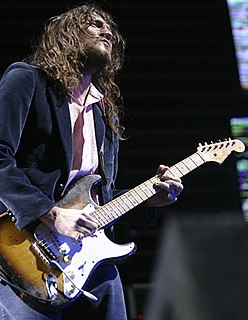A Quote by Justin Tranter
The only thing that's serious to me about music is making sure marginalized people are included in the story.
Related Quotes
Leadership has to be focused on some very radical ideas that only we as 21st Century people can talk about: making sure people have a livelihood, making sure people receive a living wage, making sure the environment, the Mother Earth, is embraced and cherished and not destroyed. Making sure people are healthy in what they eat, making sure we hold people and corporations accountable for the damage they do not only to our environment but to our institutions.
The acting part of me is not me. The music side is who I really am and what I want to talk about. It'll be hard for people to differentiate those different sides but I think it's possible. Once the music is out there, people will start to realize how serious I am about it rather than, 'Oh god, another actress making an album.'
My whole thing is I don't take from Castro being an intelligent man as long as he is doing the thing that needs to be done. But the thing is at the end of the day you're not bettering the island. You're only making it worse. So, for me it's just making sure that people have the right to speak their minds and have an opportunity in life to better their life.
Thinking about making a love story without music was really frightening, Sciamma admitted. Because every love story we know, we think about 'Titanic' we think about the music, we think about 'Gone with the Wind' we think about the music, we think about 'E.T.' we think about the music, and every love story has its own tune, 'That's our song.'
Making sure every child can read, making sure that we encourage faith-based organizations ... when it comes to helping neighbors in need, making sure that our neighborhoods are safe, making sure that the state of Texas recognizes that people from all walks of life have got a shot at the Texas dream but, most importantly, making sure that government is not the answer to people's problems.
I said I wanted to lay the foundation for my governance and that included building relations with the City Council, with bureau directors, making sure we had the right leaders in place, making sure we're communicating with community groups that have an interest in of policymaking. I feel that we did that.
My job is to cover the hell out of the story, very aggressively. The real place to be courageous if you're a news organization is where you put your people to cover the story. It's making sure that you have people going to Baghdad. It's making sure that you figure out how to cover the war in Afghanistan. While the journalist in me completely stands with them, the editor of the New York Times in me thinks my job is to figure out what the hell happened and cover the hell out of it, and that's more important than some symbolic drawing on the front page.
Many musicians are fabulously skilled at playing the black dots on the printed page, but mystified by how the dots got there in the first place and apprehensive of playing without dots. Music theory does not help here; it teaches rules of the grammar, but not what to say. When people ask me how to improvise, only a little of what I can say is about music. The real story is about spontaneous expression, and it is therefore a spiritual and a psychological story rather than a story about the technique of one art form or another.
If I had to make a choice between only writing about sports or only writing about music, I would probably write about music. I'm not sure why that is. There seems to be more to write about with music, just because it's more of a splintered thing. There's more subgenres. With sports, it's more objective in a way.
Mainly, I don't like it when music is made solely to impress people or in order to please business people; it doesn't sound good to me. If you're making music in order to become famous or loved by the masses... that's not what I'm about. When somebody's making music for the wrong reasons, I hear it right away.



































